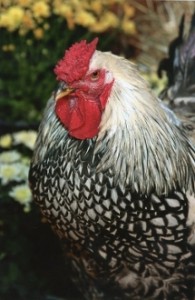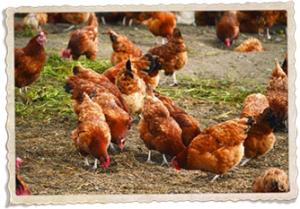The Silver Laced Wyandotte is a popular breed of chicken, and for good reason. Originating in Upstate New York back in the 1870s, the Silver Laced Wyandotte was bred to be both productive and aesthetically appealing. It’s versatility makes it an excellent choice for your farm or backyard flock, but there’s more to this breed that meets the eye.
It’s one of America’s oldest breeds
References to the Silver Laced Wyandotte date back all the way to 1873, making it one of America’s oldest breeds of chicken. The breed began with four men—H.M. Doubleday, J. Ray, L. Whittaker, and F. Houdlette—who sought to create a bird that could provide both meat and eggs. By 1883, they had succeeded, and the Silver Laced Wyandotte was admitted to the American Standard of Perfection.
It’s multi-purpose
As stated previously, the Silver Laced Wyandotte was created for the purpose of providing both meat and eggs. The four men who created the breed succeeded in this, and to this day the breed is used for both purposes. It can weigh anywhere from 6-7 pounds, providing a sizable amount of meat, and the hens can produce up to 200 brown eggs a year.
They can handle the harshest winters
Upstate New York is the birthplace of the Silver Laced Wyandotte. It also happens to be home to many harsh winters. As a result, the Silver Laced Wyandotte was created to be a hardy breed that can withstand the blistering cold of its homeland.
They were once an endangered breed
With the industrialization of poultry farming, the Silver Laced Wyandotte dropped in popularity. Consequently, their numbers also dropped, and they quickly became an endangered breed in the U.S., even being listed as a “priority breed” by The Livestock Conservancy. However, thanks to many backyard keepers, the Silver Laced Wyandotte’s numbers recovered, and they were removed from The Livestock Conservancy’s list in 2016.
As a hardy, multi-purpose chicken, the Silver Laced Wyandotte makes an excellent addition to your farm or backyard flock. If you’re looking to purchase some Silver Laced Wyandotte’s for your flock, or if you want to learn more about this breed, then contact Chickens for Backyards today to get started.

